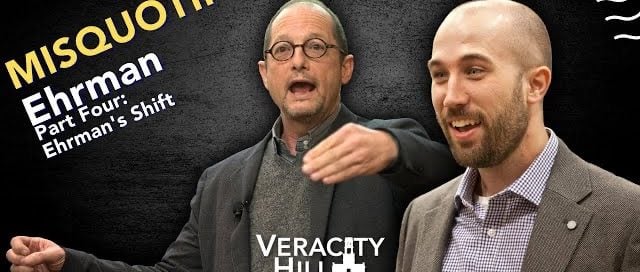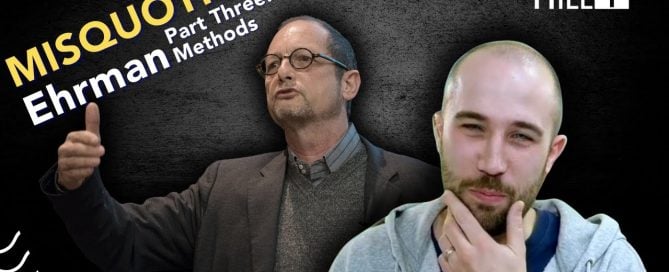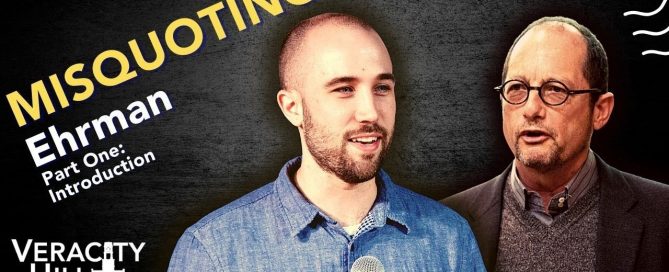New Testament Texts and Manuscripts
Specious Arguments for the Truth of the Bible
Professors who have taught the same subject for decades often get tired with covering the same material time after time and, as a result, answering the same questions time after time. I've had friends who teach New Testament tell me: "If I have to teach the Synoptic Problem ONE MORE TIME I am going to SCREAM…." I've never felt that way. It's probably just a matter of personality and brain chemistry. For me, teaching someone who doesn't know something that I’ve taught for many years just means they haven’t had the chance to learn it. It’s the same outside the classroom with questions/comments I get – the same questions all the time. I’ll admit that often in the first nano-second I sometimes think: Why don’t they just GET IT? But then I remember: Wait a second. This person hasn't heard the answer.... Here is a question that comes to me all the time. I got it again a few days ago. QUESTION: I have a brief question. I was a biblical studies major in college [...]




